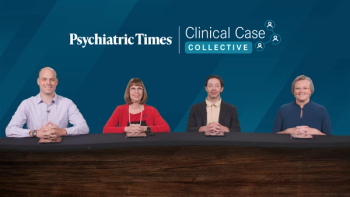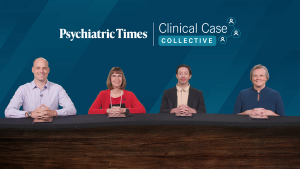
Misinformation about ADHD impacts treatment and self-perception. This Special Report clarifies misconceptions, promotes understanding, and supports informed care for individuals with ADHD.

Dr Mateka is the medical director of psychiatry for Inspira Health and serves as cochair of psychiatry. He is the president of the New Jersey Psychiatric Association (NJPA) and serves on the Inpatient/Partial Hospitalization/Residential Committee and Public Resources Committee for the American Academy of Child and Adolescent Psychiatry (AACAP). Mateka is also psychiatrist adviser for PerformCare, where he works closely with the New Jersey Department of Children and Families and Children’s System of Care.

Misinformation about ADHD impacts treatment and self-perception. This Special Report clarifies misconceptions, promotes understanding, and supports informed care for individuals with ADHD.

Panelists discuss how a patient named Kerstin was diagnosed with attention-deficity/hyperactivity disorder (ADHD) later in life during college when she struggled with organization and scheduling beyond her known dyslexia, leading to successful treatment with various stimulant medications including participation in clinical trials.

Panelists discuss how stimulant and nonstimulant attention-deficity/hyperactivity disorder (ADHD) medications have different adverse effect profiles, with stimulants causing concerns such as misuse potential, cardiovascular effects, tics, and growth suppression.

The FDA has updated ADHD stimulant labels, highlighting weight loss risks in children under 6. Stephen Mateka, DO, shares his updated treatment strategies.

Panelists discuss how a 17-year-old patient’s challenges with inattention, anxiety, and executive dysfunction ahead of college highlight the importance of balancing pharmacologic and nonpharmacologic attention-deficity/hyperactivity disorder (ADHD) treatments. They address concerns about stimulant use and medication diversion.

Panelists discuss how treatment adherence in patients with attention-deficity/hyperactivity disorder (ADHD) is often impacted by forgetfulness and misconceptions and how using tools such as pill organizers can significantly improve consistency and outcomes.

Panelists discuss how viloxazine fits into both pediatric and adult attention-deficity/hyperactivity disorder (ADHD) treatment plans, especially as a nonstimulant option for patients with complex cases or concerns about stimulant adverse effects, while emphasizing flexible dosing and caregiver involvement.

Panelists discuss how recent clinical studies on viloxazine in children and adolescents with ADHD demonstrated early symptom improvement, dose-dependent efficacy, and tolerability, with the most benefit seen at 400 mg in those aged 11 and under.

Panelists discuss ADHD nonstimulant medication options with detailed clinical considerations.

Panelists discuss how comprehensive ADHD treatment approaches emphasize combination therapy and immediate implementation.

Panelists discuss the critical role of pediatricians in attention-deficity/hyperactivity disorder (ADHD) diagnosis and treatment challenges.

Panelists discuss how attention-deficity/hyperactivity disorder (ADHD) risk factors include genetic, environmental, and socioeconomic influences.

Panelists discuss how an attention-deficity/hyperactivity disorder (ADHD) diagnosis impacts families through stress and challenges but can also provide relief and understanding. They address quality-of-life effects including academic performance, family functioning, driving safety, and the need for structure and routine management.

Panelists discuss how diagnostic challenges include ensuring symptoms are developmentally appropriate, distinguishing attention-deficity/hyperactivity disorder (ADHD) from other conditions such as depression and anxiety and using tools such as the NICHQ Vanderbilt Assessment Scales and Connors Comprehensive Behavior Rating Scale to assess symptoms across multiple settings.

Panelists discuss how the Diagnostic and Statistical Manual of Mental Disorders, Fifth Edition, Text Revision (DSM-5-TR) criteria for attention-deficity/hyperactivity disorder (ADHD) require at least 6 of 9 symptoms in either inattentive or hyperactive-impulsive domains, with inattentive presentations often unrecognized in girls and highly intelligent students in particular.

Panelists discuss how attention-deficity/hyperactivity disorder (ADHD) presents in a 10-year-old boy with combined presentation symptoms, emphasizing the importance of seeing difficulties across multiple settings and noting the genetic component when family history is present.

The new child and adolescent section editor for Psychiatric Times offers his thoughts on how best to engage with youth patients.

Stephen Mateka, DO, Psychiatric Times' new Child & Adolescent Psychiatry Section Editor, shares thoughts and insights.

Published: July 9th 2025 | Updated:

Published: June 16th 2025 | Updated:

Published: July 16th 2025 | Updated:

Published: July 23rd 2025 | Updated:

Published: June 9th 2025 | Updated:

Published: July 23rd 2025 | Updated: